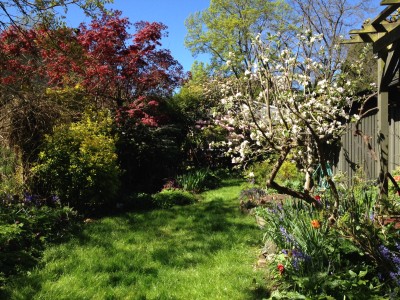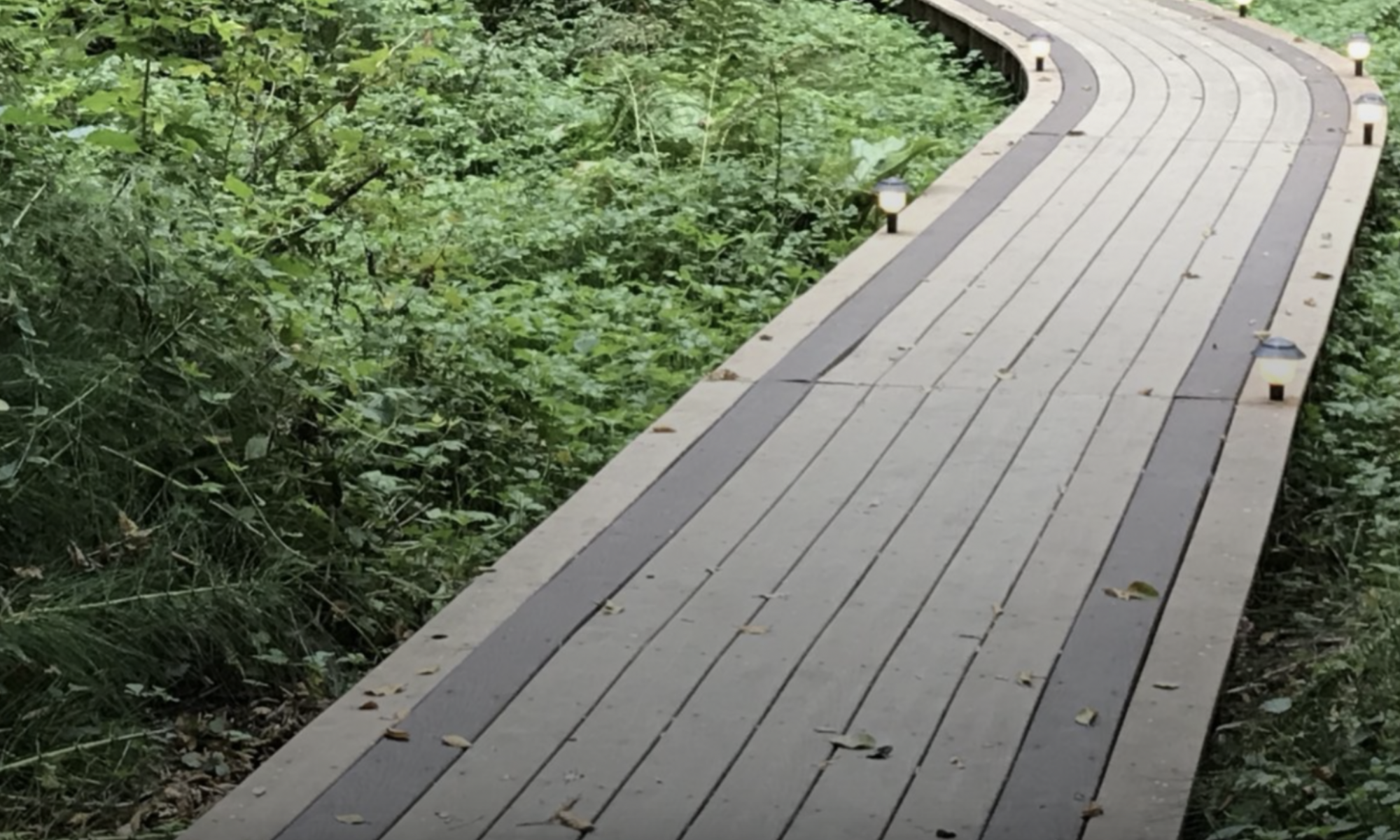 I love Washington State on a sunny day. Rainy days too, I suppose. But it’s just easier on a sunny day. The blue skies make the greens a bit greener. Sun isn’t to be taken for granted here. When it’s out, I join others in leaning into it more, like human sunflowers. Buds on trees are blossomed, awakened. Just as I am. Today, in these gardens that my partner Teresa tends so well.
I love Washington State on a sunny day. Rainy days too, I suppose. But it’s just easier on a sunny day. The blue skies make the greens a bit greener. Sun isn’t to be taken for granted here. When it’s out, I join others in leaning into it more, like human sunflowers. Buds on trees are blossomed, awakened. Just as I am. Today, in these gardens that my partner Teresa tends so well.
If Someone Cried In Heaven
St. Catherine of Siena is author of this short poem. She lived in the 1300s in Italy, and was said to have profound interest in all of the humans that came before her.
I was thumbing through several poems yesterday and today. Looking for a few to take with me to the next two events that I get to be a part of. And wanting to the feel the energy of poetry. Less mechanics and tasks. More presence and simplicity.
This poem makes me laugh. Makes me smile. For me it is more about being able to see bigger pictures, whether within Christian traditions or other larger narratives of life.
.
If Someone Cried in Heaven
If you cried in heaven, everyone
would laugh
for they would know you were just
kidding.
Corrosive Reality & Irrelevant Idealism
Interesting terms, no?
They come from Parker Palmer, someone whose writings I’ve long enjoyed. I read these particular words in a post by Alisdair Smith, sent to me by a friend.
I’m the kind of person that has long been interested in the relationship between these two, reality and idealism. In fact, it was way back in Grad School that I remember feeling inspired and challenged by Parker Palmer’s invitation to be careful of the polarity, and not to collapse it. Both are needed. Beware of the either / or choice. Develop the ability to stay in the third space.
The reality side for me is far more tenuous than I would have been able to claim 25 years ago, though I think I had the instinct then, as I do now, to recognize that reality is not as it seems. Objective reality is not as it seems. It has become my life to support the creation of alternative realities. Not just because I can, but because it is a core operating principle for being in the world that is ever unfolding. Think of the subjective experience that influences outer perception. Think of Byron Katie’s work on decolonizing fear and stress. Think of the Appreciative Approach and the principle, “what you give your energy to grows.”
The idealism side for me is far more concrete than I would have been able to claim 25 years ago, though I think I had this instinct too. Invoking a world into existence matters. Reifying it matters. Having the discipline to speak to, even a fragment of an ideal, matters. Like when someone says something is all wrong, I usually hear it as “some parts of it are wrong.” I’ve rarely run into situations that are absolutely all good or absolutely all bad. Our brains want to believe it. But I just don’t find it to be true. There is a place for idealism.
The key that is more helpful and interesting to me as I think of these terms is that there is choice. Reality itself is a choice. So is idealism. Perhaps the corrosive parts are when we are stuck, forgetting that choice of reality exists. Perhaps the irrelevant parts of idealism are when they don’t connect enough to a story, discipline, and practices of choosing what to narrate into the world.
Parker Palmer has inspired me many times for the narrative he creates. It invites and evolving, individually and collectively, which is quite interesting, no?
Soultime
Later this week I will participate in a men’s retreat, Soultime. It is Friday evening through Monday afternoon, this time with nine men, including myself. This is the fourth time that I have participated.
Soultime works from the simple premise that contemporary men are largely without initiation. I’m not talking refiner’s fire now. There is plenty of challenge in life to be met with various levels of tenacity and endurance. I am talking deliberateness in ceremony and the kinds of together that are about resonance and remembering who we are. Less doing. More being.
There will be food that we prepare together. There will be drumming. There will be singing. There will be story-telling. There will be sharing dreams, both those experienced over the nights and those present in waking life. There will be spontaneous rounds of conversation in circle, moving the inner worlds of each of us to the outer worlds of shared witness.
There is much that I love about Soultime. Foremost among those is that there is something uniquely beautiful and important about men tending to each other. Calling out the experiences that are most sacred, tender, or even unknown. I experience this with many people, men and women, yet, over the last 15 years, this has been particularly valuable with men.
Soultime is, well, for the soul. In the story I tell myself, it isn’t just about us as individuals retreating. There is that. But I like to also believe that in the work we are doing together at Soultime, it is also for a broader group. I don’t make that my focus — I choose to stay in the simple presence of the moment, not thinking it too much. But I’m aware that maybe Soultime is also for men in general, not present for the singing.
Maybe it is an evolving that reclaims what we, both at Soultime and not, need for the next phases of development and maturing in these rather involved and rapidly times.
